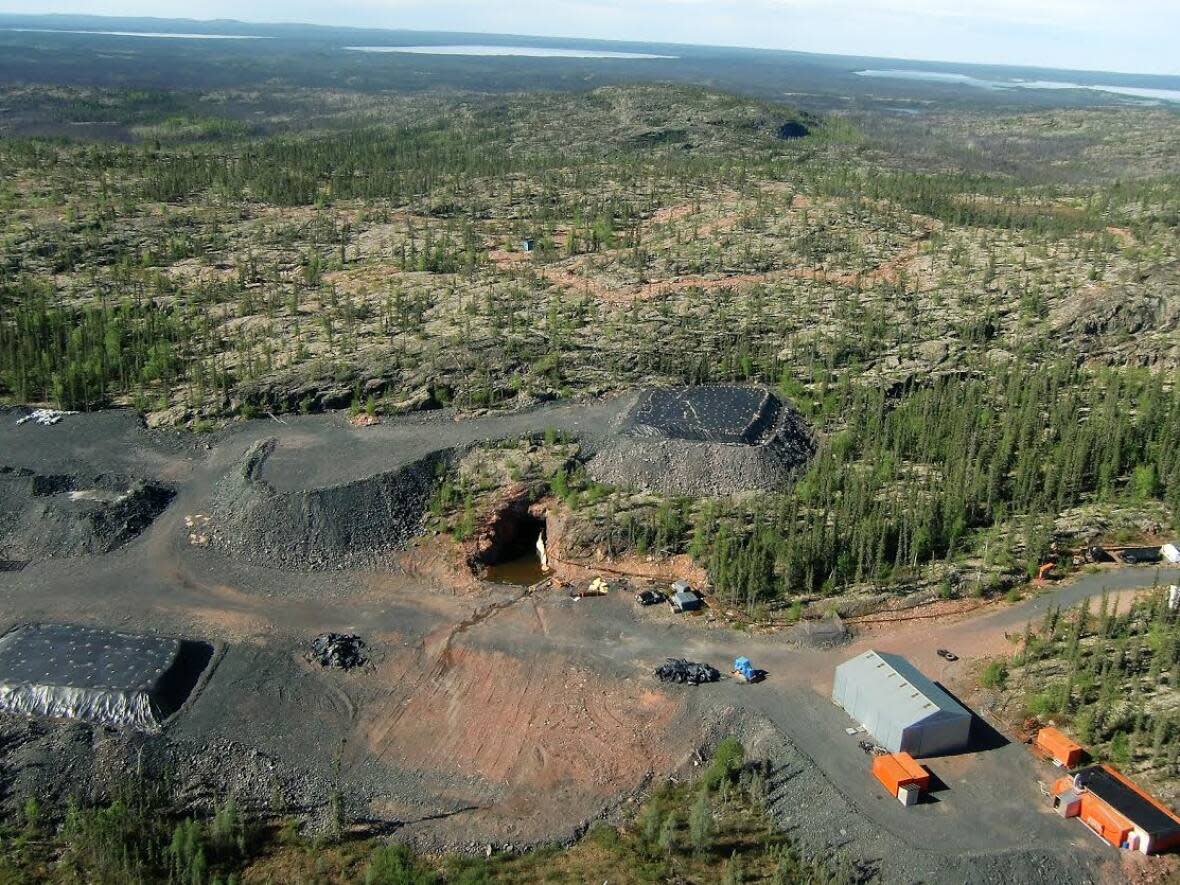Fortune Minerals to buy property in Alberta for NICO project refinery

Fortune Minerals has announced plans to build a refinery in Alberta for materials it extracts from the NICO project near Whatì, N.W.T.
The company announced its intent to purchase a steel fabrication plant and 77 acres of land from JFSL Field Services for $5.5 million on Monday.
Robin Goad, the president and CEO of Fortune Minerals, said it'll cost $350 million to build the refinery — which will process cobalt, gold, bismuth and copper. Cobalt, said Goad, is the current priority.
The material is used in lithium-ion rechargeable batteries that are used in electric vehicles. Cobalt plays a role in the range, safety and rechargeability of those batteries, said Goad.
"The most important metal is the cobalt. That's then followed by, in descending order of economic importance, gold, bismuth and copper. All of these metals go up and down, in terms of their prices."
Canada has put cobalt, bismuth and copper on its list of critical minerals.
A welcome development
Alfonz Nitsiza, the chief of Whatì, said the mine development is welcome and he's looking forward to an update from Fortune Minerals soon about how the project is going.
"Usually we're concerned about the environmental impact through the tailings … but what I understand from the NICO project is that they'll take out the concentrate and ship it out from here," he said. "So there won't be that much [processing] done in the North."
Nitsiza said money has been an issue with the project because it's being led by a junior company but the latest news about the Alberta refinery is a sign that it's moving forward.
Goad said the entire project, including the refinery, is expected to cost $750 million. The company is exploring various financing options, including strategic partnerships and public trading. Part of it will also involve taking on debt, he said.
Fortune Minerals has six months to complete the $5.5-million option to purchase.
In a press release, the company said the location is in Alberta's industrial heartland northeast of Edmonton. It's near other shops and services that'll reduce the cost of developing the NICO project, and has access to the CN Rail.
Goad said Fortune Minerals has approval from the federal government, the territorial government, and the Tłı̨chǫ Government for the NICO project. It's also passed an environmental assessment.
Greenhouse gas data not provided
Electric vehicles are touted as being the environmentally friendly alternative to gas vehicles, but mining for the materials needed to create them has its own environmental impact.
The recently opened Tłı̨chǫ highway has been dubbed a "key enabler" for the NICO project, and Fortune Minerals has plans to build a spur road that'll allow concentrates to be trucked from the mine to the railway in Hay River or Enterprise so it can get to Alberta.
Goad said the trucking, and the mine's energy supply, will be large sources of greenhouse gas emissions. He said the NICO project will start out using liquid natural gas because the existing power grid doesn't have enough power to support the project's demands.
Goad hopes the NICO project will be able to run on hydropower in the future.
Goad would not provide the NICO project's greenhouse gas emission estimates, saying the numbers are not "properly engineered" and it wouldn't be "appropriate to use them in a public forum."
He did say, however, that a long-term goal for the refinery is to process recycled materials, including batteries, chemical waste, and scrap metals.
It's necessary to mine for new cobalt, rather than recycle it, he said, because "the consumption of cobalt is happening at such a fast pace that there isn't enough cobalt in batteries available for recycling."
Goad said it's also important to mine the material in Canada, because more than 70 per cent of cobalt is produced in the Democratic Republic of Congo, and more than half of that is controlled by Chinese state-owned enterprises.
Fortune Minerals says the mine is expected to employ 250 people, and the refinery will employ another 100.


